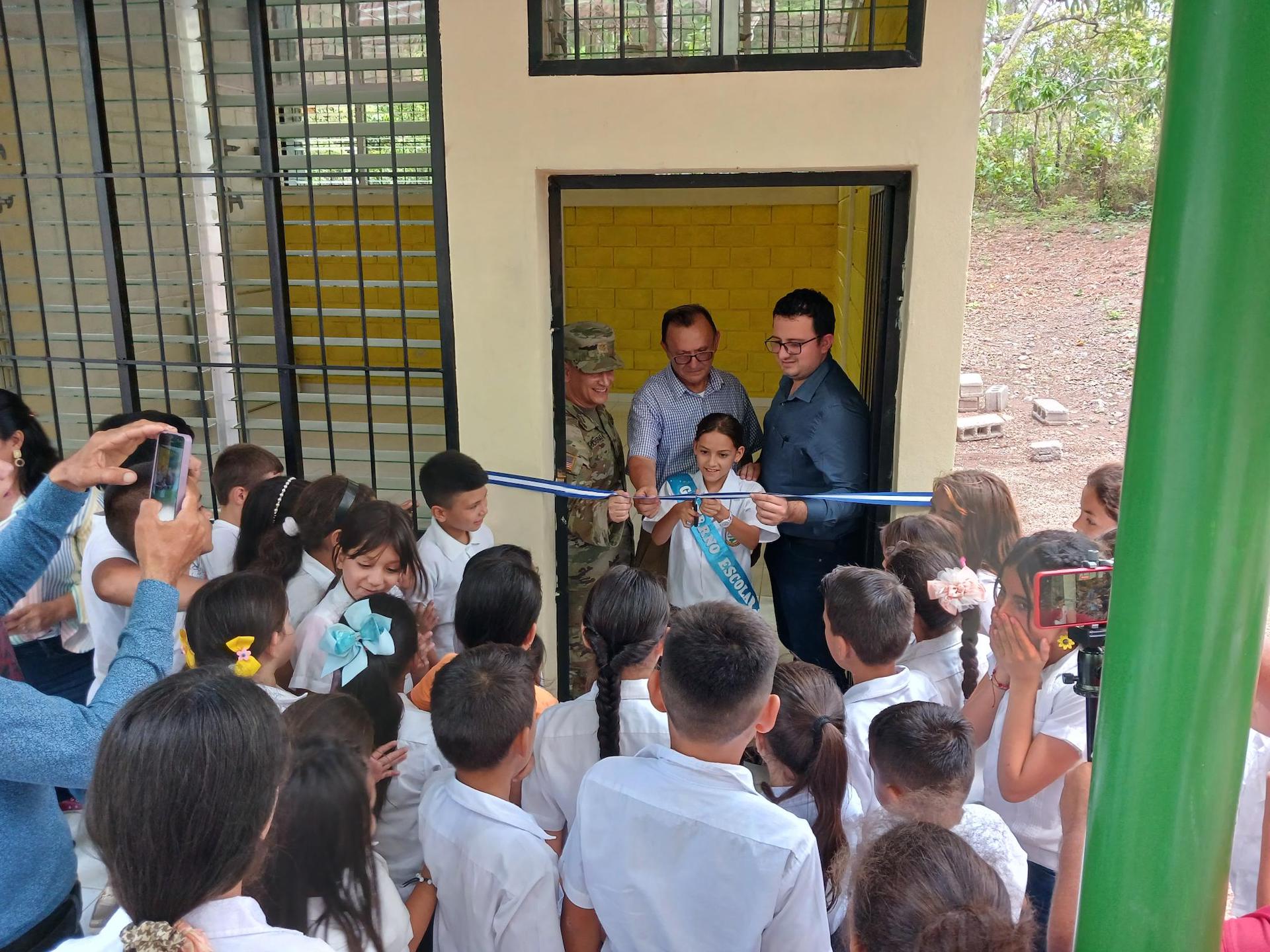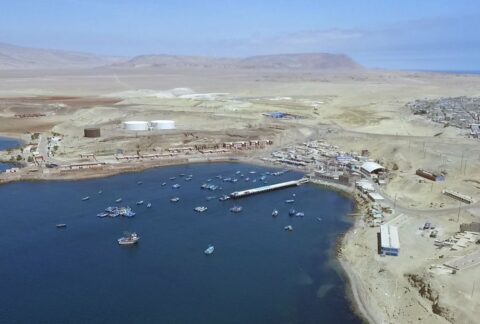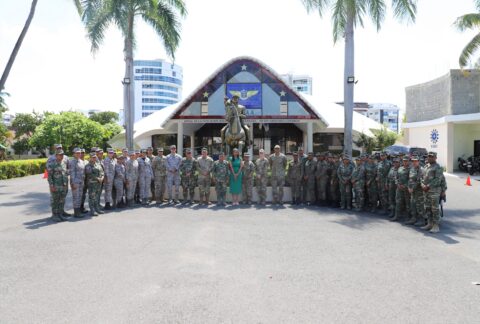In the village of Plan de Encima, Santa Bárbara department, Honduras, students who wanted to go to high school had to travel about 25 km daily. They had to get up before 4 a.m., walk, then ride in the back of a pickup truck to arrive at 7 a.m. for classes at the educational center in the village of San Pedro Zacapa.
The odyssey did not end there. In addition to the dangers of traveling alone on the road, they were also at the mercy of the elements. “We were afraid to send our children; we knew that they would go to class tired because they’d walk more than two hours,” J. Natividad Pérez, president of the parents association of the Nuevo Amanecer school in Plan de Encima, told Diálogo on September 12. “In addition, we never had enough money for transportation, and when it rained they arrived home with wet clothes, shoes, and books.”
“That’s why many parents from Plan de Encima and other nearby communities decided not to send their children to high school anymore,” Martín Zacapa, municipal mayor of San Pedro Zacapa, told Diálogo. “Until U.S. Southern Command [SOUTHCOM], through the Office of Civil Affairs of Joint Task Force Bravo [JTF-Bravo], helped us with the construction of classrooms. We were able to get our kids to no longer be exposed to those dangers.”
JTF-Bravo is always ready to provide humanitarian aid to the civilian population in Central America and especially in Honduras. It works closely with the Honduran Office of Security Cooperation and as part of the U.S. Agency for International Development’s (USAID) Partnership for Education.
In Plan de Encima, JTF-Bravo service members built classrooms, a dining kitchen, toilets, a drinking water tank, and also restructured the existing classrooms at the Nuevo Amanecer school. The school previously only taught up to 6th grade, now there are students enrolled in 7th, 8th, and 9th grades.
“This grant is a great investment. Building thriving nations and strong, diverse democracies and educating youth is an investment in our future,” U.S. Army Colonel James A. Wiese, commander of JTF-Bravo, told Diálogo. “We are proud to be part of this effort with our Honduran family. Quality education is a path to progress for any nation.”
Santa Barbara is one of 18 departments in the country that have received support from JTF-Bravo, which has had a presence in Honduras for more than 40 years and dedicates time and effort to humanitarian aid missions, which increased in 2023.
“Let us think of education as a means to develop our greatest capacities. In each of us there are hopes and dreams that, once fulfilled, can translate into benefits for all,” Col. Wiese added.

More projects
“JTF-Bravo’s Civil Affairs efforts to rehabilitate and rebuild schools throughout Honduras […] receive overwhelmingly positive responses from the affected communities,” U.S. Army Captain Nicholas Mogensen, chief of Civilian Knowledge Integration for the 436th Civil Affairs Battalion, Alpha Company, told Diálogo. “The communities themselves provide the manpower, creating a true partnership where Hondurans are empowered to build a better future for their children.”
Capt. Mogensen added that they don’t just build schools. Health projects, which include medical supplies, water, sanitation, and hygiene infrastructure are non-stop.
“The departments where we are most active in 2023 are Atlántida, Comayagua, Copán, Cortés, and Santa Bárbara. We also continue to work in the departments of Choluteca, Colón, Francisco Morazán, La Paz, Olancho, and Valle.”
Another important contribution is the donation of medicines for the medical missions that the Health Secretariat carries out in the departments of Lempira, Ocotepeque, and Yoro, Capt. Mogensen said. In 2023, this adds up to 172 projects with a cost of more than $2.8 million.
Close medical care
Because JTF-Bravo is headquartered at Soto Cano Air Base, Honduras is the country that benefits most from these medical missions. “These missions are focused on patients who live in remote areas with very little access to medical care and have to walk long distances to be seen,” Dr. Ricardo Avilés, JTF-Bravo’s Medical liaison officer, who has been a member of the medical care working groups since 1992, told Diálogo. “Although it’s a general medical mission, just being evaluated by medical professionals and having preventive medical or dental care is a big change.”
JTF-Bravo also identifies places that have very low immunization coverage and reports them to the Secretary of Health, who mobilizes his vaccination missions to these populations, preventing diseases from spreading in the region.
But JTF-Bravo also carries out specialty missions. “For example, we are going to do urogynecology reconstructive surgery missions at the end of September. The waiting list at the Hospital Escuela Universitario in Tegucigalpa alone is about 1,000 patients,” Dr. Aviles said. “In addition, JTF-Bravo helps with various programs to reintegrate young people into productive life.”
JTF-Bravo supports nongovernmental organizations in their medicine and food distribution programs in Central America. In cases of natural disasters, thanks to their excellent aerial capabilities, they are always the first to arrive to provide relief.
These missions also include veterinary care. In late August, JTF-Bravo conducted sterilization campaigns and canine and feline vaccination, veterinary preparedness exercises (VEDRETEs); including vitamins, deworming, and vaccinations to animals in four Honduran municipalities.
“Honduras is a key regional partner and the many missions JTF-Bravo conducts throughout the country demonstrate how much we value our strong and long-standing partnership,” Col. Wiese concluded. “Honduras will always hold a special place in the heart of JTF-Bravo because we live here with you, while also supporting many important efforts throughout Central America.”









